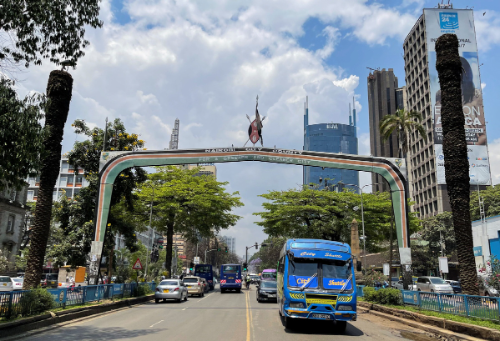Kenya to Repatriate Health Data After Trump-Era USAID Cuts

TLDR
- Kenya is preparing to migrate key national health data systems from U.S.-based servers to local infrastructure after aid cuts by the Trump administration
- The announcement was made by Health Cabinet Secretary Aden Duale during the World Health Assembly in Geneva on May 25
- The move affects platforms like KHIS2, KenyaEMR, Chanjo KE, KMFL, Afya KE, Damu KE, and Kemsa I-LMIS, all built and hosted with USAID support
Kenya is preparing to migrate key national health data systems from U.S.-based servers to local infrastructure after aid cuts by the Trump administration disrupted access to essential platforms.
The announcement was made by Health Cabinet Secretary Aden Duale during the World Health Assembly in Geneva on May 25, following months of data shutdowns linked to reduced funding from the United States Agency for International Development (USAID).
The move affects platforms like KHIS2, KenyaEMR, Chanjo KE, KMFL, Afya KE, Damu KE, and Kemsa I-LMIS, all built and hosted with USAID support. These systems underpin Kenya’s ability to track diseases, manage treatment, coordinate vaccines, and support rural clinics.
Since March, Kenyan officials have reported data access losses, affecting surveillance and planning for HIV/AIDS, malaria, maternal health, and immunizations. UNAIDS confirmed that access to the Kenya Health Information System had been disrupted, threatening Kenya’s ability to monitor outbreaks and maintain routine care.
Daba is Africa's leading investment platform for private and public markets. Download here
Key Takeaways
USAID’s $2.5 billion strategic plan for Kenya (2020–2025) was a critical pillar of the country’s healthcare funding, with about 80% allocated to health programs. The recent aid cuts—part of a broader foreign policy realignment under President Trump—have left a $403.8 million hole in Kenya’s health budget, exacerbating existing weaknesses in data infrastructure and technology. Kenya’s decision to localize health data is both a response to this immediate disruption and a longer-term strategy to build sovereignty over its digital health infrastructure. But challenges remain. Years of underfunding and corruption have left Kenya’s Ministry of Health without the technical capacity or financial resources to quickly replace the lost donor systems. Health experts warn that without urgent investment in secure, scalable local data centers, Kenya may face further delays in disease tracking, treatment delivery, and crisis response. The case underscores a broader vulnerability facing many low-income nations: digital dependency on donor-built platforms, which, while effective, can be abruptly destabilized by geopolitical shifts outside their control.

Next Frontier
Stay up to date on major news and events in African markets. Delivered weekly.
Pulse54
UDeep-dives into what’s old and new in Africa’s investment landscape. Delivered twice monthly.
Events
Sign up to stay informed about our regular webinars, product launches, and exhibitions.




